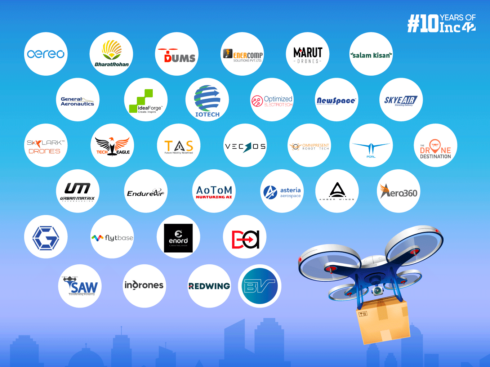
I write about sales often both because it’s the lifeblood of any organisation and because in my experience it is the area in which more startups are least experienced or inclined. I also write and talk about it frequently because raising capital is a part of sales and this is important for entrepreneurs to understand.
To make it simple and easy to remember — there are three basic rules of sales:
- Why Buy Anything?
- Why Buy Me?
- Why Buy Now?
This post will cover the first.
If you ask any experienced sales leader they’ll tell you there are three things to know about being effective at sales: Qualify, qualify, qualify. This is simply because sales people have limited time and can’t afford to waste time with anybody who isn’t likely to buy from them in the near term.
But how do you qualify?
Do You Have A Problem I Could solve?
The starting point is to ask yourself whether the person you’re dealing with has a problem that is solved by the solution you offer. If they don’t — you simply won’t sell anything. That’s why many great sales starts with generating inbound marketing leads. If you create content marketing programs and drive traffic to websites where you can measure how long somebody spends reading your materials or downloading your white papers you’ve at least confirmed some level of interest.
If you have a product, knowing who the “typical buyer” by department or title is helps you greatly because you can quickly get to somebody likely to be familiar with the space in which you’re selling. If you know the title you can use tools like SalesLoft to build lists of potential leads.
If you generate outbound email campaigns to groups of potential buyers you can use SalesLoft or tools like Yesware and ToutApp to track whether people opened your emails, clicked on your links, downloaded your documents, etc. This is a part of determining the interest of potential buyers and allowing you to focus your scarce time on the most important leads you have. All of these products are great and if you’re not using anything to track the interest level of your prospects you’re competing with one hand tied behind your back [note: I’m not an investor in any of the companies mentioned in this post.]
The other obvious area in determining interested parties is to find referrals from trusted sources. That’s why companies partner with vendors with complementary service offerings. At Invoca (where I am an investor) we have partnered with people like Salesforce.com and HubSpot on go-to-market campaigns because our products work really well together. Invoca helps you to manage inbound sales calls (efficacy, attribution, duration, etc) and given how many people have historically only tracked click-based campaigns the shift to mobile ads has made Invoca one of the fastest-growing SaaS companies in our portfolio.
What is the single biggest mistake I see inexperienced startup people do in sales? Wasting time with prospects who aren’t likely to buy simply because they show interest and are nice to them. And, because most startupentrepreneurs aren’t used to sales, they hate to ask the tough qualifying question for fear of being told, “no.” Yet, no can be the 2nd most gratifying quick response you can get in sales. Nothing is worse than maybe or not knowing.
Let me make it simple:
If you can’t identify a problem that a prospect has that you can quantifiably solve you won’t sell anything.
This is the definition of “Why Buy Anything?” You have a problem that I can fix. That doesn’t mean you’re going to select me — but at least I know I’m not wasting your time or mine.
Do You Have A Budget?
The other big mistake people make in qualifying is not determining whether the buyer has a budget to afford their product. There are two types of people with no budget.
The first is somebody who legitimately has interest in your product and has the level of influence needed to one-day buy your solution but doesn’t have the budget authority in the near-term to pay for your product. This is somebody you drop into your “marketing funnel” so that your marketing department can keep them appraised of your company’s progress, releases and announcements, so that you can follow up with them down the road when the may have more budget. You need to focus your limited time in the near term on people who can close in the near term.
The second type of person who has no budget is a time waster who could never buy your solution but like meeting with you. It’s super easy to get time-wasters to spend time with you because they like the time and attention you’re showing them. And they are usually pretty nice people so it makes you feel good. It feels better than meeting with tough-as-nails leaders of business units who won’t give you a free pass because you’re nice even if you can get shite done.
I call these second type of non-buyers NINAs, because they have “no influence” and “no authority” to buy. Avoid NINAs.
I generally like to tell people that if you have a product or service and can’t identify qualified buyers, “You either don’t have anything of value or more likely you just don’t know how to sell and you need to figure that out if you want to succeed.”
“Why Buy Anything” is single easiest part of the sales equation and if you can’t identify likely buyers you have no hope.
Fundraising
I wanted to take a final moment to talk about fund raising because it’s obviously vital to building a startup. Raising money is selling. Your product is you.You’re selling that you have unique skills to be successful and a product that end-customers are going to care about. You’re selling the fact that your company is going to be valuable and you’re building trust that through good times and bad you’re going to work your ass off to make money for the investor.
I find that many entrepreneurs talk randomly to VCs about fund raising. But if you’re raising a seed round and talking to a billion-dollar growth-stage fund you’re not being very focussed. Equally, if you’re talking with a $100 million fund about your $20 million round your hit rate will be low. So understanding the stage of a VC matters.
Also, you need to consider the type of investments each VC does. Can you look at their portfolio and see deals that are at least similar to what you do? Finally, you even need to qualify down to the partner level. If you are talking with a partner who hasn’t funded any gaming startups and you are a gaming startupit’s worth asking them the question before meeting whether they would consider investing in your sector. Or if you notice another partner in the firm active in that area it’s worth getting to the right partner to increase your hit rate.
So make sure you qualify before even making calls or asking for intros.
Once you have the meeting and do your presentation its worth asking directly, but politely, “I’m not asking yet whether my startup is the right fit for you, but do you or your firm even do investments in our space?” It’s worth getting the dialogue going because it will help you to handicap how much effort to put into persuading the individual going forward. This is all part of qualifying whether or not this investor will Buy Anything.
As with selling products the research you put into fundraising before you start the process will pay huge dividends in your efficiency and hit rate yet most entrepreneurs take VC meetings haphazardly based on where they can get easy introductions.
Finally, the same rules apply for VC firms raising money from LPs. I met with a person last week who wants to raise a first-time fund but this is a discussion I have with many VCs who are raising 2nd or 3rd-time funds, too. He told me that he had met a big state pension fund and that he was hoping he could get them on board because it was the state pension from where he lived and thus had a “hometown advantage.”
I told him he had nearly zero chance of closing a pension fund on a first-time $50 million VC fund. First, pension funds normally write very large checks — $50Mn and up often. Many have $25Mn minimums. Why? Because they manage many billions of dollars so they simply don’t have the resources to deal with small funds. Second, most state pensions are very conservative and wouldn’t likely invest in a VC fund that was in its first vintage. Nobody ever got fired for giving money to Sequoia, Accel, Greylock, Benchmark or now Andreessen so they’re going to start with the big names. Many state pensions can’t get into these “access funds” but there are many other late-stage VC funds that raise $1 billion plus and have been around for 30 years.
It may not make economic sense for a big pension fund to invest in certain funds but if they don’t have the in-house expertise to figure out who the next Fred Wilson, Josh Kopelman or Jon Callaghan is they certainly have no idea whether or not it could be you. So they won’t take the risk.
Understanding the “Why Buy Anything?” question from your prospects and qualifying is important for anybody who needs an economic decision made. And it’s the start of any great sales process.
[This post by Mark Suster first appeared here and has been reproduced with permission.]


























